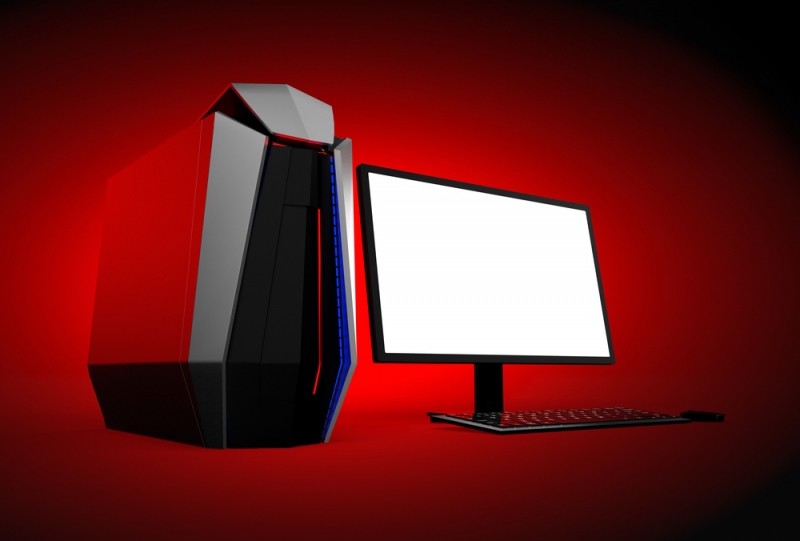Choosing a computer case should be easy, right? Well it’s a little more complicated than you might expect. Read on to learn how to choose a computer case.
Are you wanting to ditch your laptop and build your own desktop computer? If you love electronics, this idea may have crossed your mind in the past.
And why not? It’s totally possible.
There are a lot of components that go into a computer, though. And before you even consider the inside, you’ll have to think about what will hold it all together.
It’s easy to focus on the inside components of a computer, but the case is just as important. Choosing a computer case should be a thoughtful process, and you have lots to consider.

So how do you choose the right computer case for your project? Read on for some helpful things to keep in mind.
Computer Case Sizes
Computer cases come in three main sizes: full, mid, and mini. You’ll have to decide which one works for your project.
Consider the looks of each size, as well as what they’ll allow you to include in your computer. These are both important to keep in mind as you make your decision.
Full-Tower Computer Cases
Full towers are huge, so make sure they’re really what you want before you get one. We’re talking 20 inches or larger.
A large tower may be perfect for you though if you’re wanting to use a large motherboard.
If you’re interested in water-cooling, large amounts of storage, and 3- or 4- way graphics cards, a full-tower case may be the right one for you. A full-tower cased will give you the room you need to add all the features you want, such as more fans and drive bays, or just more room to move in general.
Just keep in mind the space you need for the components you want. Don’t spend the money on more space if you don’t need it. And don’t take up more space than you need!
Mid-Tower Computer Cases
Mid-tower computer cases are bit smaller than full-tower cases, around 18 inches high and 8 inches wide. These cases are pretty common and offer a good mix between size and accommodation of components.
A mid-tower has enough room to fit important systems, a couple graphics cards, and a good cooling system. Though these towers are smaller, they can still hold quite a bit of data.
The smaller size is nice, but make sure the case you go with will hold everything you want to add to your computer.
Mini-Tower Computer Cases
Where full-tower cases accommodate just about everything, mini-towers hold only the bare minimum. These towers area specifically built for use with mini motherboards, so don’t get one of these if you plan on using a non-mini motherboard.
While mini-towers offer a much more compact size, you’ll have to make some concessions. For example, a mini-tower may not be able to hold all the hardware you want. And full-length graphics cards won’t fit in some mini-tower computer cases.
If you go with this size, you’ll be very limited as to what you can put into your computer, so keep that in mind when you choose.
Budget Considerations
As you compare computer cases, keep your budget in mind. It’s helpful to know your budget before you begin looking. But if you aren’t familiar with how computer cases run price-wise, you may need to look around to get an idea of what your budget should be.
The smaller your budget, the less you’re likely going to get in a computer case. You may be able to get everything you need for less than you think, though.
Some cases offer extravagant options that will raise the price, so be wary of paying more for looks than for functionality.
A budget of around $50 to $150 will put you in a position to have lots of options. You’ll get a good amount of variety in design and construction to choose from.
Lowering your budget will make it harder to find all the features you want. You may need to settle for one fan instead of two. Or you may need to consider raising your budget.
Computer cases that are more than $150 will be big players that offer just about everything you could want. Determine what’s most important to you and find a good balance between price and components.
As you compare your options, don’t forget to read reviews like the ones found at Computer Case Lab. Hearing from others who have bought the products already can be invaluable!
Know Your Preferences
As you compare computer cases, and you should be comparing them, your personal preferences should largely guide your decision. You may need to give a little in some areas, but it’s your computer, so go for what you want.
Don’t feel like you have to settle because of budget or other restrictions. If you have to, wait longer to make a purchase. You’ll be happier, in the long run, doing this than purchasing something that doesn’t match what you wanted in the first place.
So take stock early and know what you want. Otherwise, you’ll waste a lot of time in your case comparing.
How many fans do you want? Is one sufficient, or do you need two?
Do you care more about silence, or the fans doing their job?
What would you like the case to look like? Cases come in a huge variety, so there’s no need to choose something you don’t like. Look for colors, materials, and designs that suit your fancy.
Some cases are extravagantly made in order to be different and eye-catching. Be aware that in these cases you may end up sacrificing functionality for cool looks. Make sure you always know the case’s specifications and that they match what you’re looking for.
Do you care if components have a tool-less design? How do you want cables to be managed?
Ask yourself these, and many other questions, before making a decision.
Choosing the Best Computer Case
Ultimately, only you can decide which computer case is best for you. You know your preferences better than anyone else.
Suggestions are helpful but go with your gut. Make sure you get everything you’re wanting while staying in that budget that you set ahead of time.
Though you’ll need to make the final decision, keeping these things in mind will set you in the right direction.
We’d love to help you choose the right electronics for you. To learn more about helpful gadgets, head to our website today.











Leave a Reply